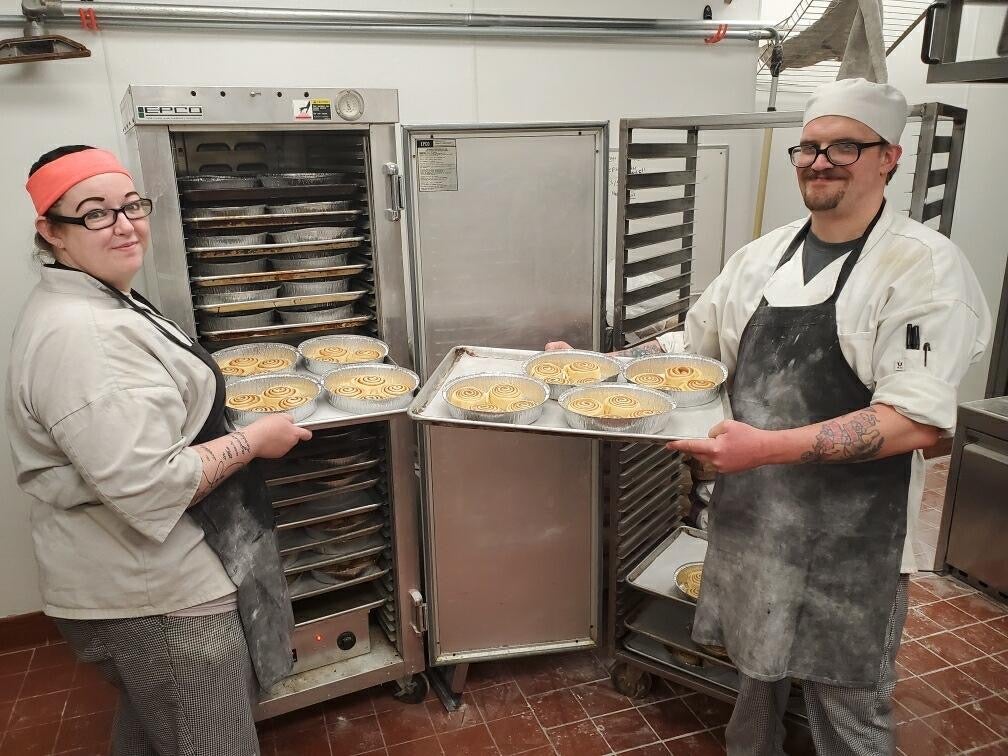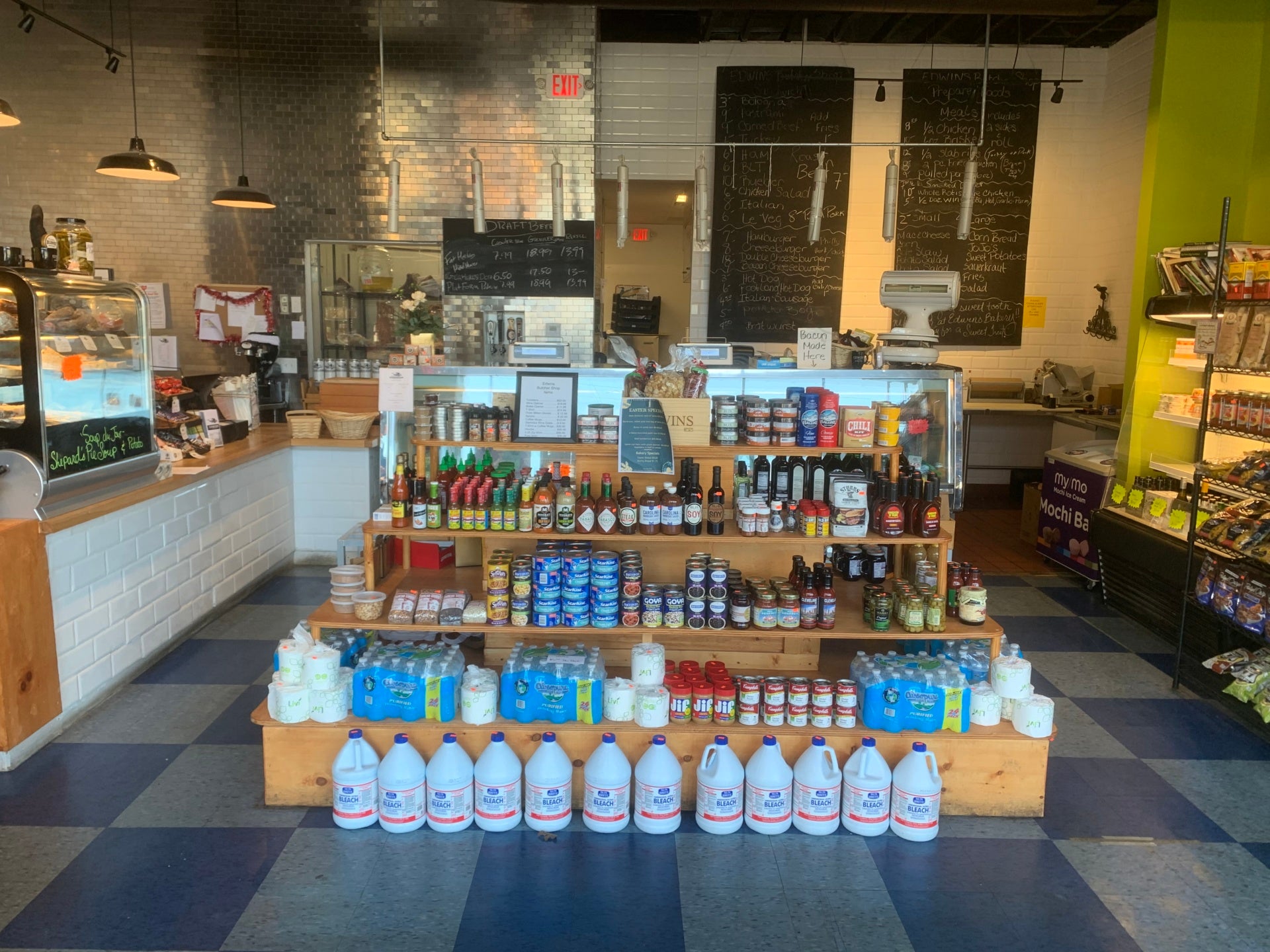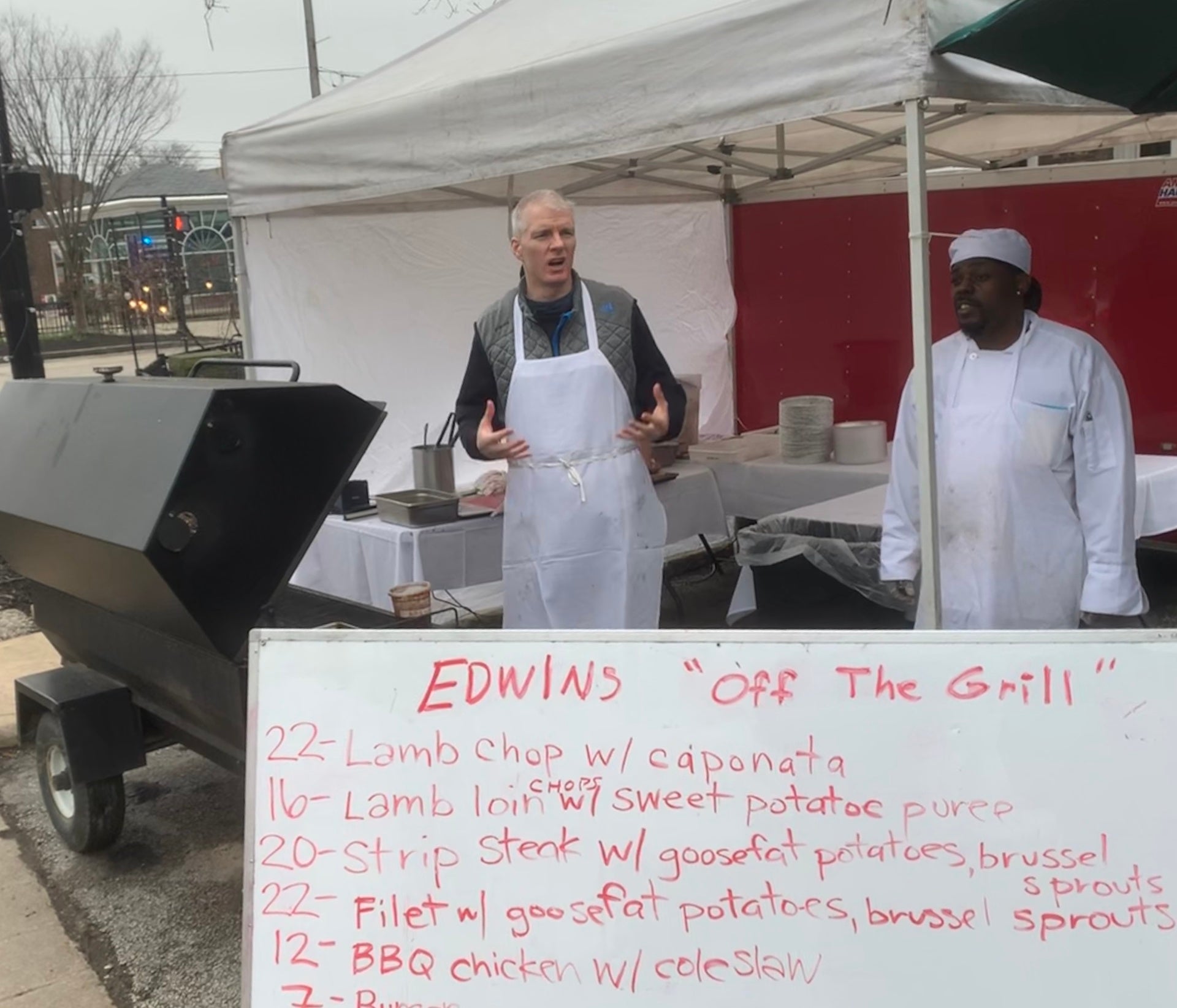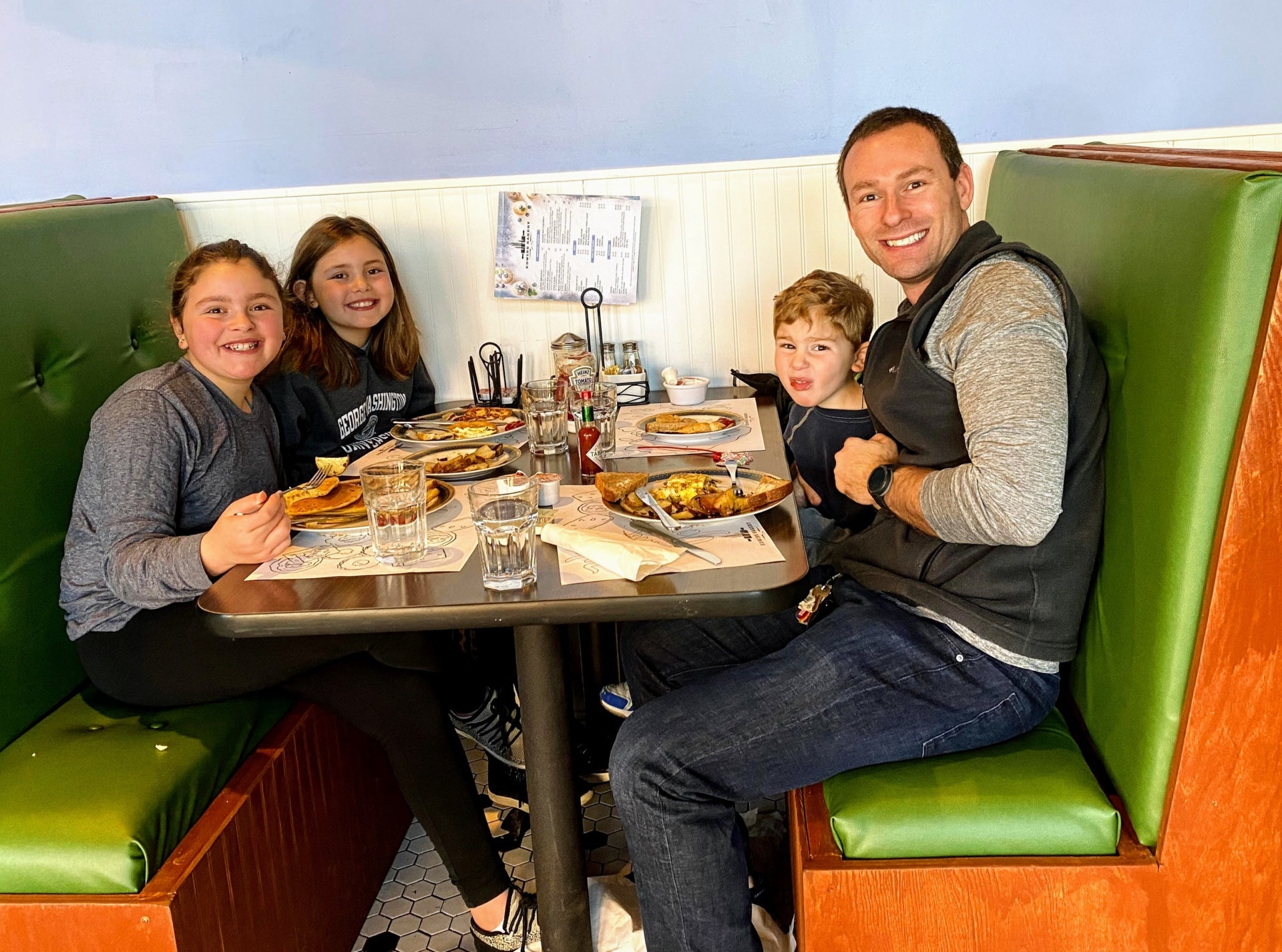How can you tackle recidivism and serve your community at the same time? Civil Society Fellow Matthew Fieldman and the team at EDWINS Leadership & Restaurant Institute is leading the way. Based in Cleveland, Ohio, EDWINS is ensuring their work bettering the futures of previously incarcerated individuals would not end due to the COVID-19 pandemic, but instead pivoted their model to meet the needs of their community. We spoke with Matt about the EDWINS model, what it took to pivot, and advice for others looking to serve their communities.
Matthew, you were a part of the founding team at EDWINS, led the fundraising efforts to get the initiative off the ground, and were the first board president. What was the problem you and the team were trying to solve?
The original problem we were trying to solve was recidivism – which in America – is anywhere between 40-60%. That 40 to 60% of people coming out of prison will end up back in prison within three years. The number one need for people coming out of prison as a job. Jobs provide an income and they also provide a reason to live – a purpose. Meanwhile, the restaurant industry is always looking for quality. people who want to work hard. There were cafeterias and catering operations, but no one had [made this type of connection] in fine dining. Our founder Brandon Edwin Chrostowski’s background is in fine dining, so [we] came to the idea of starting a nonprofit made as an educational Institute – a school for culinary training.
Our goal is nothing less than to reshape the face of reentry, reshape how America looks at people coming out of prison. Help people see them as raw potential for the future, not look back at their past and judge them based on the mistakes that they’ve made.

EDWINS students making cinnamon buns at the restaurant.
EDWINS expanded beyond the initial fine dining restaurant to be a bakery, a diner, and a butcher shop. But you’re also providing an ecosystem of resources to the individuals in the program. How did you come to identify that there were other needs?
You’ve got to support them in their journey – and that’s different for every individual. It started with jobs, but our first hire outside of the restaurant was a social worker – officially a case manager – to assist students with all the barriers that they face coming [out of prison]. You can’t assume they have any support system whatsoever. So, that’s everything from, legal issues, housing, food insecurity… As a result, EDWINS recidivism rate is less than 1%. I think we’re able to break the cycle by giving people the fundamental elements.
It became very clear that housing was the biggest [barrier]. Figuring out how to get them out of their old neighborhoods, out of sleeping in cars, sleeping in public, or on transportation…we identified some abandoned buildings that we could acquire cheaply from the city and renovate. We raised $1 million and made it happen in 2018. Now, we have 18 to 25 students in our residence halls. These students learn from about 1:00PM to 4:00PM each day and then serve in the restaurant until 11:00PM – but that was in the pre-COVID days.
The restaurant and service industry have obviously been hit hard by the pandemic. How were you able to keep EDWINS students working while many restaurants have been forced to close?
Like all restaurants, EDWINS was forced to make difficult choices in light of COVID-19, but we never wavered our commitment to community. Rather than closing up completely, EDWINS pivoted, shifting focus from fine-dining to offering family-style meals for four people for $40. This deal allows us to feed Cleveland and expand beyond our typical diners. We have even hired 12 new people over the last few weeks to keep up with the increased demand.
We were also recipients of the Global Response Fund from the McNulty Foundation. With the funds, we were able to make critical renovations at the butcher shop to expand the grocery offerings. With a new cooler and increased shelf space, we are providing essentials like eggs, flour, milk and butter to local residents.

Basic necessities EDWINS is offering to serve the needs of the Shaker Square community.
EDWINS was able to identify what the community needed during this time. For others trying to figure that out, what advice do you have for them?
EDWINS is in Shaker Square, which is this really interesting neighborhood of Cleveland. It happens to be where the richest of Cleveland meet the poorest – in the same block. My main piece of advice would be talk to the people you’re trying to serve – get a sense of what they need and want. We have a really good sense of what both the students that attend EDWINS need and want, and also what the community needs and wants. Our founder Brandon has done a great job of embedding himself in the community. When they said, “We can’t get our hands-on bleach or gloves,” for example, we’ve said, “We can.” And that’s why we are now stocking basic supplies at the butcher shop. Look for opportunity through the crisis.
In addition to the family style meal at the restaurant, we’re out front grilling at night – giving people that same hope – saying, “You’re still part of a bigger community.” Yes, we were all spaced out in our cars, but it brought [the community] of Shaker Square together to say, “You know, we’re going to get through this together.”

EDWINS curbside grill in Shaker Square.
You were in Aspen for your second seminar of the Civil Society Fellowship when the pandemic was starting spread across the United States. How did that have an impact on how you are leading through this crisis?
It is so interesting to see Fellows – and the teams behind those Fellows – rising to the challenge. The Pahara-Aspen Education Fellows and the Health Innovators Fellows were having their worlds turned upside down, but they came in with such composure and brought their full selves to the discussion. That’s how I want to be: composed, calm, thinking through all the different ramifications, and really go back to my values. [I’ve been] constantly thinking: what are the values that we need to make these decisions off of? That’s what leading in a crisis is all about.

Matthew and his kids at the EDWINS Diner pre-COVID.

